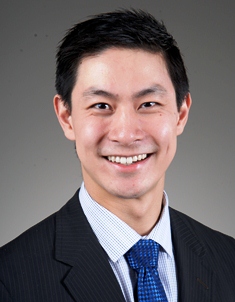10. Showing up counts.
Body and mind wellness are more linked than we realize at times. Though finding chances for exercise can be difficult, we can always find something to do at the gym if we simply show up, as even 10 minutes on the bike is far more productive and beneficial than just going home and slouching our time away.
9. Watch closely, and ask nicely.
Many of us will be presented with all sorts of opportunities to enrich ourselves, whether they beare reading free textbooks, research, advising, discovering the best preceptor for a clerkship, etc. Sometimes, getting those chances revolves around simply noticing and asking somebody-whether a doctor, fellow student, or just about anybody-nicely. The worst possibility, a lack of response, typically will not kill you.
8. Something is better than nothing.
Especially on clerkships, physicians want to assess your clinical reasoning and help you improve in that aspect. Even if you are certain that you are wrong on your assessment and plan for a patient, formulating some sort of plan gives others a chance to provide you with feedback. The whole point of rotations is to be wrong enough to learn how to be right.
7. Ignore the noise.
Nobody studies or learns the exact same way, so probably one of the worst things to do (notably when board exams come close) is to ask your classmates how they are preparing. Information can be quickly taken out of context, turning every conversation into a potential death spiral toward unnecessary anxiety.
6. Find someone "similar" to you.
Asking the "smartest" people how they study or what they do will probably give you a detailed perspective of how the smartest people function. In contrast, asking someone with similar values, ethics, learning style, or personality can give you a great idea of what will and will not work for you.
5. Those moral victories matter.
Medical school can be a long grind, so setting small benchmarks to hit is a great way to keep the morale and the drive to get through even the toughest of times. A simple way to do things is to simply work through a checklist; crossing items off is immensely satisfying, especially in tough stretches.
4. Start today; repeat tomorrow.
Literature tells us that, if we repeat something around 21 straight days, we will form a habit. Eventually, a combination of habits will define who we are. That could be eating well, exercising, regular reading, smiling more, etc. At one point, you do have to get to "tomorrow" with the "I-will-start-tomorrow" line.
3. If it is important, just write it down.
Every time you hear anything important, whether in lecture, in the wards, at the grocery store, etc., write whatever you heard down. That may mean annotating what is in front of you, carrying a small notepad, saving a small text in your phone, or even scribbling on your arm. This is how you will never forget anything important.
2. Don't be the smartest person in the room.
Be the hardest-working person in the room, the most enthusiastic person in the room, the most interesting person in the room, the most affable person in the room, etc. If you think you are the smartest person in the room, you are probably getting complacent with yourself. Medical school is about learning, and medicine requires lifelong learning to truly succeed.
1. Dress for success.
Wherever you are, whenever you dress well, both your confidence in yourself and your interactions with others are simply so much better. On another note and more importantly, when all else fails, one positive always trumps no positives at the end of the day.
|
Jason Liu |
 |
Back to February 2016 Issue of IMpact

